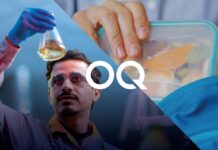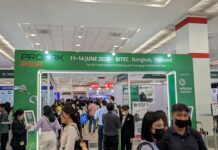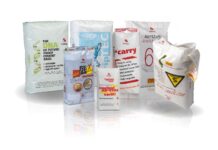Renewable energies, resource-saving processes, climate neutrality – rising to major challenges is key. These global tasks require creative minds, innovative technologies and high-performance materials. From 19 to 26 October 2022 the international plastics and rubber industry will meet at K 2022 in Düsseldorf to present their contributions to a solution. As the world’s most relevant trade fair for the sector and industrial applications, K in Düsseldorf brings together the trends and topics of the future, thereby giving the industry fresh guidance, especially in these challenging times. It is the innovation and business platform for raw material producers, manufacturers of plastics and rubber machinery and processing companies as well as indispensable information and networking platform for all interested parties from the most important user segments.
Furthermore, it offers the plastics and rubber industries ideal prerequisites for discussing, and actively tackling, current challenges on a global level, with a focus on solutions. This is also evidenced by the three leading themes of K 2022 – climate protection, circular economy and digitalisation. These leading themes that will sustainably determine developments in the plastic and rubber industries over the coming years will be addressed by exhibitors’ displays at K 2022 from 19 to 26 October and serve as the recurring themes for the official Special Show “Plastics Shape the Future”, the Circular Economy Forum as well as the Science Campus at the trade fair.
Quality support for finetuning these guiding themes at K in Düsseldorf will come care of a high-calibre expert body, the Scientific Council of K 2022. The Council already met twice this year, in July and November, with a view to highlighting the most important aspects of the individual guiding themes, phrasing current and forward-looking questions and charting the course for their implementation at the trade fair.
Members of the Scientific Council of K 2022 –
Professor Dr – Ing. Christian Bonten, University of Stuttgart, head of the Institute for Plastics Technology (IKT).
Professor Dr – Ing. Hans-Josef Endres, Leibnitz University Hannover, Institute for Plastics and Circular Technology.
Professor Dr Ulrich Giese, German Institute for Rubber Technology (DIK) Hannover, board of management.
University – Professor Dr Ing. Christian Hopmann, RWTH Aachen, head of the Institute for Plastics Processing.
University Professor Diploma Ing. Dr mont. Reinhold W Lang, Johannes Kepler University Linz, Institute for Polymer Materials and Testing.
Professor Dr HC Bernhard Rieger, TU München, WACKER-chair for Macro-molecular Chemistry.
Professor Dr Ing. Alois K. Schlarb, Technical University of Kaiserslautern, chair for Composites.
Professor Dr Hans-Werner Schmidt, University Bayreuth, chair for Macro-molecular Chemistry I.
The scientists have already drawn up a comprehensive list of the aspects to be considered. This list for instance includes – recycling of components, standardisation of recyclates, micro-particles in the environment, bio-degradable plastics, CO2 as a polymer component, Industry 4.0, digital markers, digitalisation as an enabler for the circular economy, lightweight construction and e-mobility.











